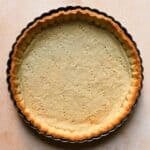Last updated on June 15th, 2025.
When it comes to creating delectable desserts, the foundation is key, and one of the most essential elements in pastry-making is Pate Sucree or sweet tart dough. Whether you’re a seasoned pastry chef or a novice baker, mastering this sweet, crumbly pastry is a game-changer for your culinary creations.
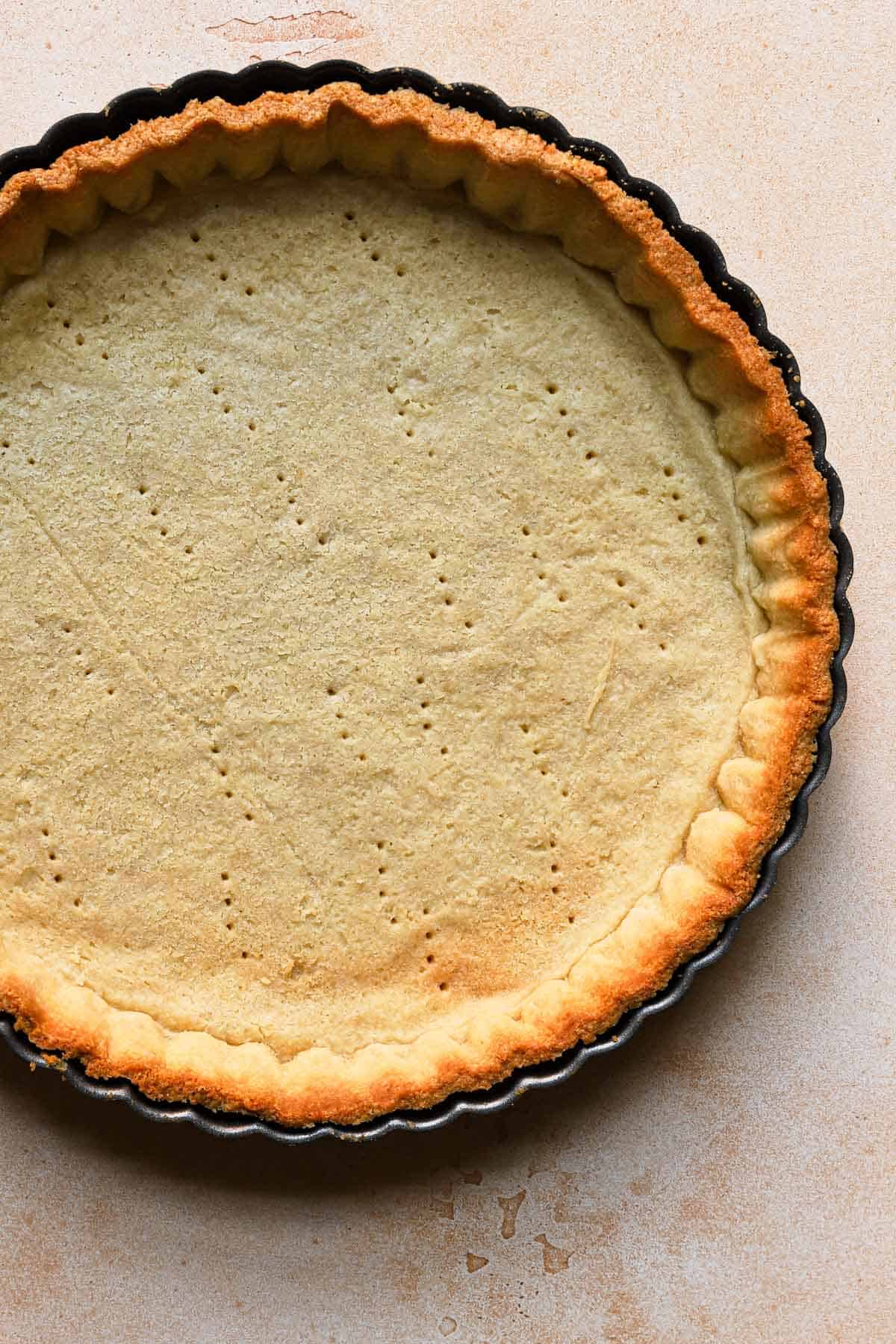
What Is Pate Sucree?
Pâte Sucrée, pronounced “pat soo-kray,” is a classic French sweet pastry dough known for its delicate, crumbly texture and slightly sweet flavor. It’s commonly used as the base for a variety of tarts and tartlets, making it a versatile pastry that can be filled with everything from fruit and custards and creams and also chocolate and nuts. Its name, which translates to “sweet pastry” in French, hints at its delightful sweetness and its ability to complement a wide range of fillings. Most times the dough is baked in a tart pan with a removable bottom.
Ingredients
- Bleached All-purpose flour (unbleached is ok)
- Granulated sugar, or powdered sugar
- Teaspoon salt
- Unsalted butter, soften. While it’s possible to use margarine, butter is preferred for its superior flavor and texture.
- Large Egg, at room temperature (or an egg yolk plus two tablespoons of heavy cream)
- Vanilla extract
- Almond flour (optional)
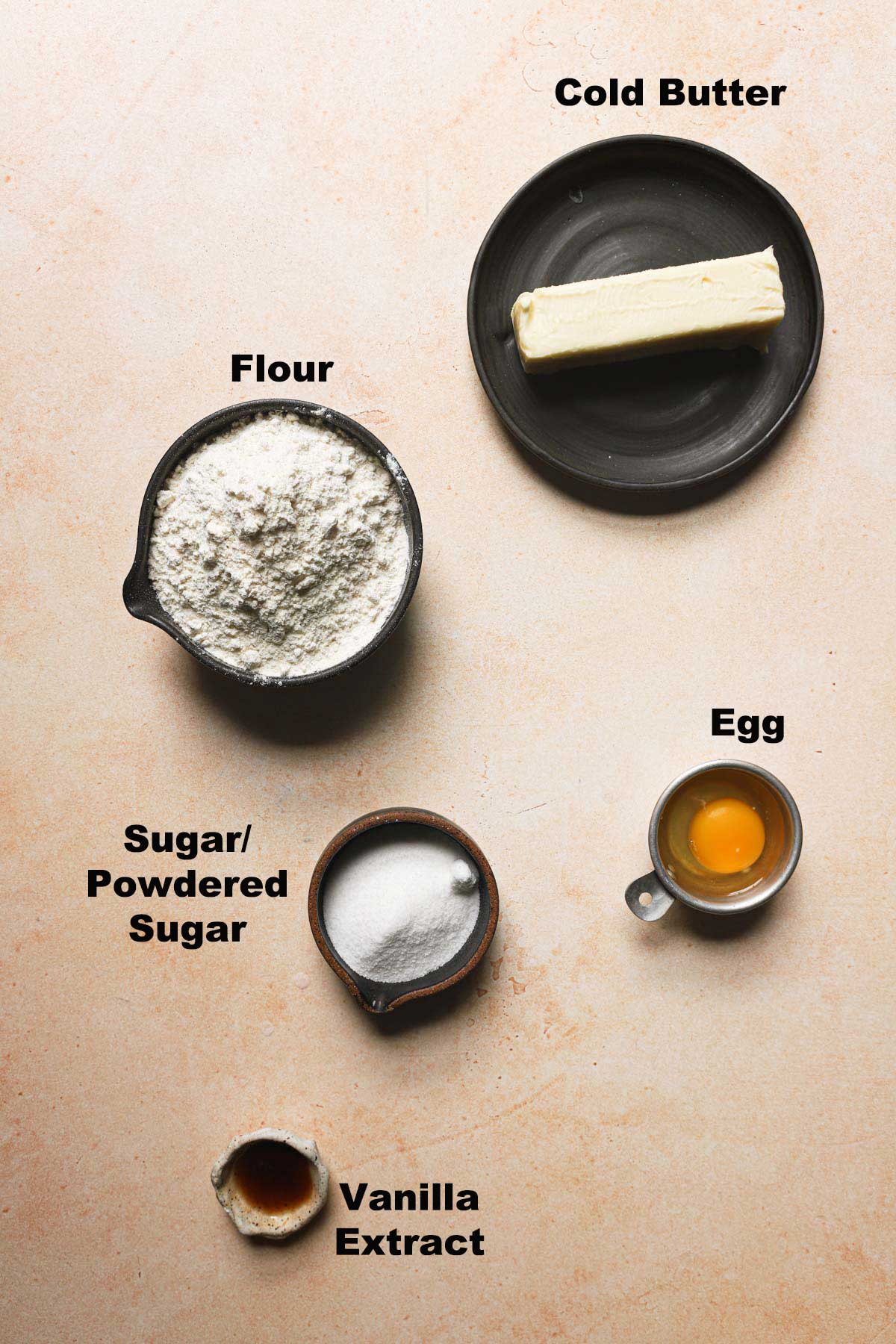
How to Make Pâte Sucrée
Time needed: 30 minutes
You can make this recipe using one of three methods: a food processor, a stand mixer, or a bowl and a wooden spoon. Whichever method you choose, the process and steps are the same. If using a stand mixer, use the paddle attachment, and if using a bowl and a spoon consider replacing the sugar with powdered sugar for an easier process.
- Butter and Sugar
Mix the butter and sugar until combined.
- Add Egg
Add the egg and vanilla extract and process to blend.
- Flour and Salt
Add the flour and salt and process until you have a smooth dough.
- Press and shape
Press the dough together and shape it into a disc, wrap it with plastic wrap, and refrigerate until use.

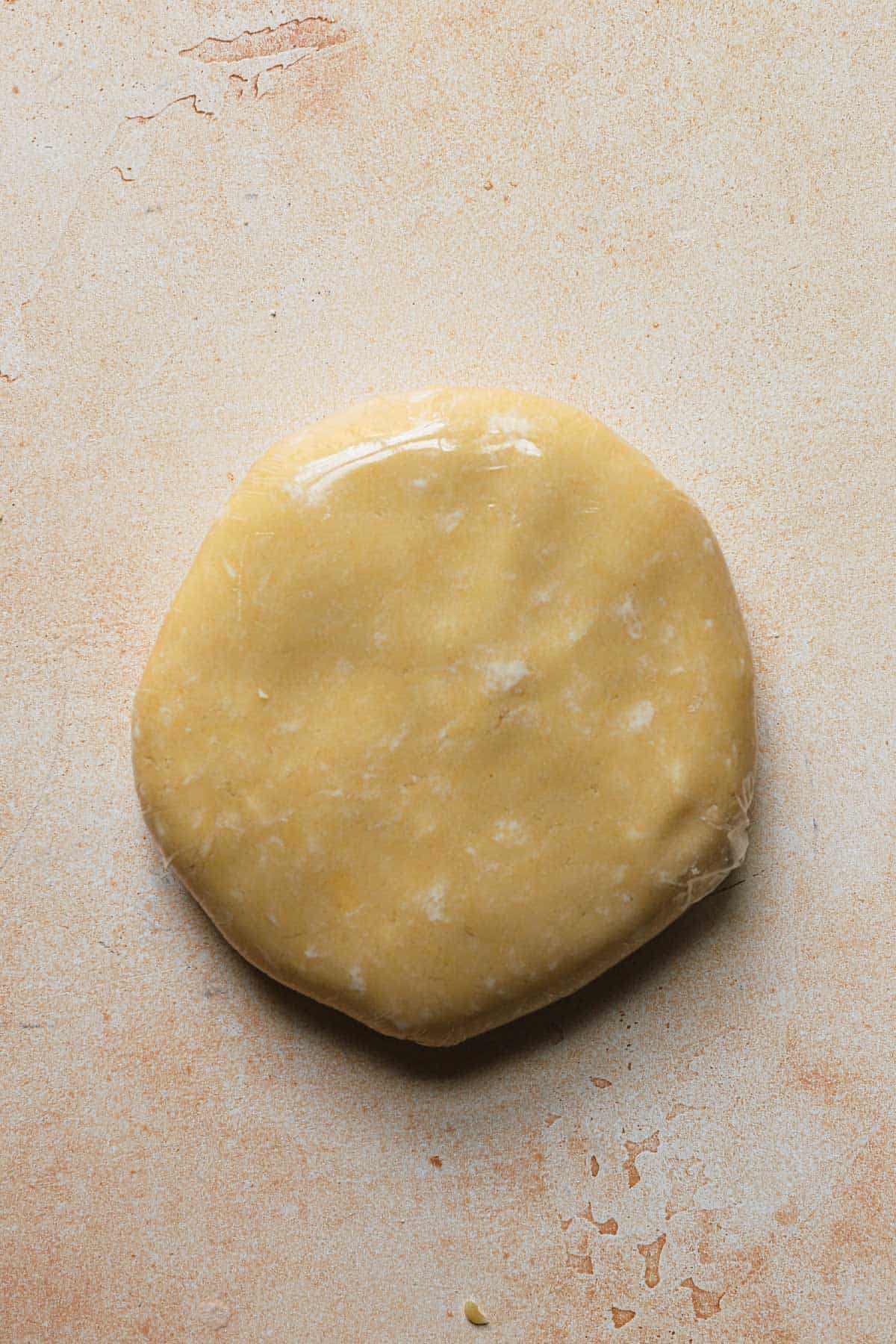
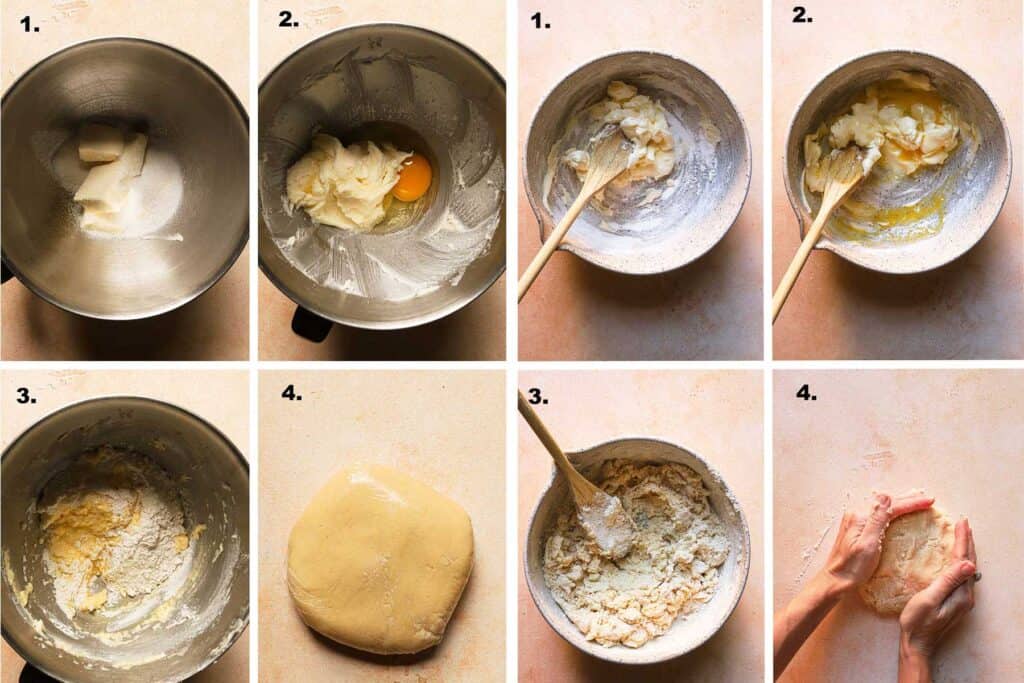
Rolling and Handling the Dough
This short sweet dough is famous for being hard to handle, and I found that rolling it using the method below is the easiest, fastest, and least frustrating technique.
- Remove the dough from the refrigerator and use a rolling pin to roll it between two large pieces of parchment paper to the size needed.
- Peel the top piece of parchment paper, then use the bottom piece to line and gently press the dough into the tart shell. At this point the butter is soft again, so place the tart with the parchment paper in the refrigerator to chill and set again.
- Gently peel the paper off, trim the excess dough, and prick the bottom part with a fork. The dough in now ready for baking or filling.
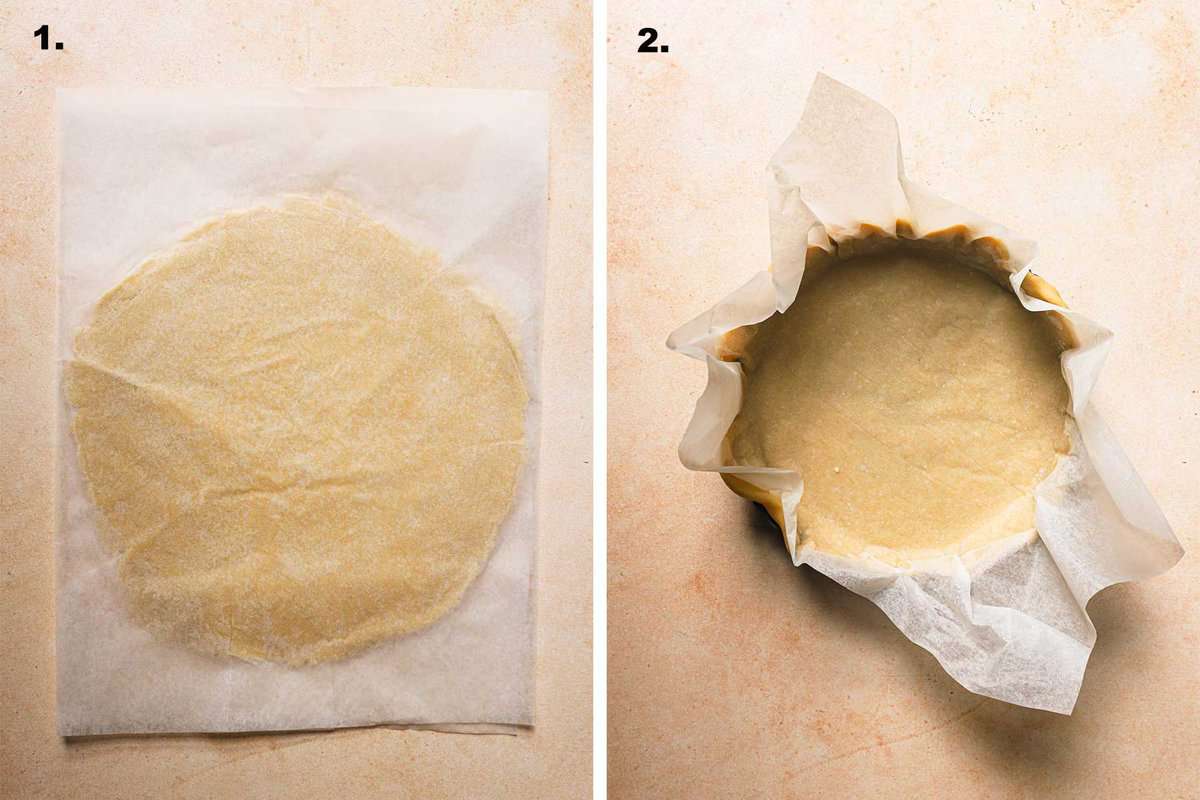
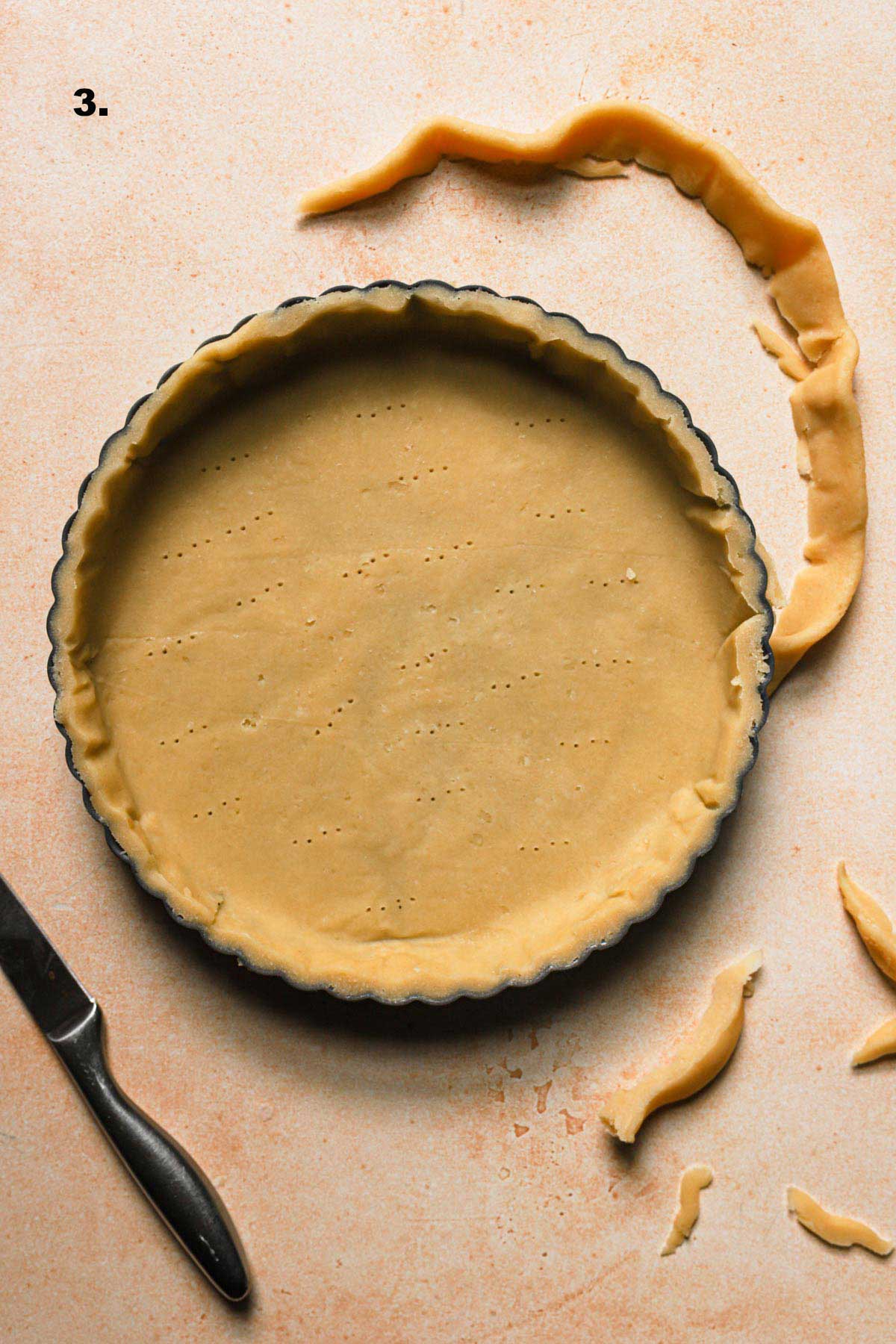
Blind Baking
Blind baking is a baking technique used for pies or tarts with fillings that don’t require any baking or don’t require extended baking or for fillings that could make the crust soggy if added raw. The purpose of blind baking is to partially or fully bake the pie crust before adding the filling.
Blind baking helps ensure that the pie crust is fully cooked and doesn’t become soggy when you add the filling. It’s a crucial step in making pies like custard pies, cream pies, or quiches, where the filling doesn’t require extended baking or where a crisp crust is desired.
- Preheat the oven. Place a baking sheet over the bottom oven rack. Place the tart shell in the freezer or refrigerator while the oven is warming.
- Line with Pie Weights or Beans. To further prevent the crust from puffing up, or shrinking, line it with greased parchment paper or aluminum foil, then add pie weights, dried beans, or rice on top. This weight helps keep the crust flat and in place.
- Blind Bake: Place the prepared pie crust in the preheated oven over the baking sheet, and bake it for a specified amount of time, often around 10-15 minutes for a partially baked (par-bake) crust or longer for a fully baked one. The exact time will depend on your recipe and the type of pie you’re making.
- Remove Weights. Allow the tart to chill for 10-15 minutes at room temperature before carefully removing the parchment paper or foil along with the pie weights, beans, or rice.
- Finish Baking (if needed): If your recipe calls for additional baking time after removing the weights, continue baking until the crust turns golden brown.
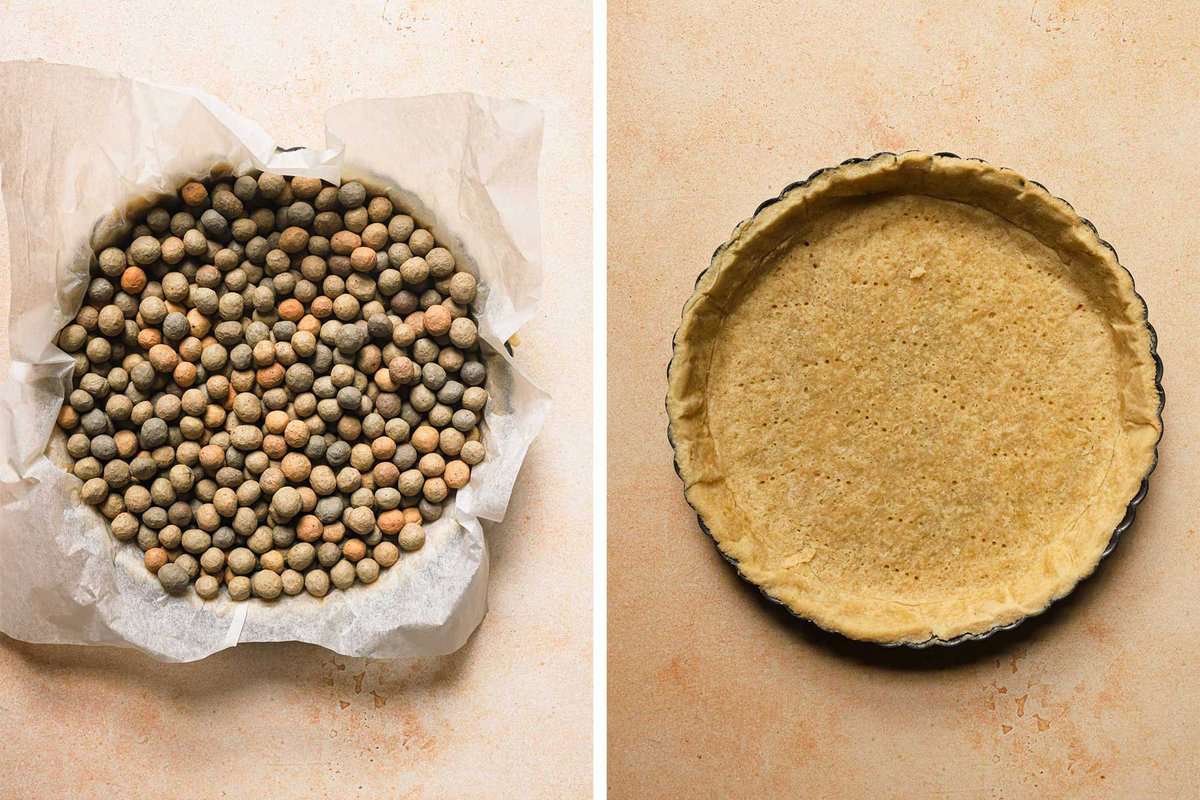

Expert Tips
- Don’t Overwork the Dough: Overworking the dough can lead to a tough crust, so handle it gently.
- Don’t add more flour. Adding too much flour will change the texture of the dough. This is why I like to roll the dough between two pieces of parchment paper vs. a floured surface.
- Chill Before Baking: Always chill the dough before rolling it out and baking it to prevent shrinkage.
- Be patient and allow the dough to cool completely before inverting it onto a wire rack.
- For more defined swirls, use a straw or the handle of a wooden spoon to press the sides of the pan before baking.
Storing and Recipe Ideas
Storing: You can store Pâte Sucrée in the refrigerator for up to three days or freeze it for several weeks. If frozen, thaw it in the refrigerator before using.
Recipe Ideas: The possibilities for fillings are endless! Try classic options like lemon tart, chocolate ganache tart, or fresh fruit tarts. Get creative with savory options like quiches or mini tartlets.
How To Use pâté sucrée
This recipe is great for sweet tarts like Tarte Au Chocolat, Pear Frangipane Tart, or this French Strawberry tart.
Once baked this buttery and tender crust can be filled with unlimited options of filling like Almond Cream Filling, or custards like pastry cream and ganache, here are some more options:
- Creme Legere. Pastry cream lightened with whipped cream.
- Creme Mousseline. Pastry cream thickened with butter.
- White Chocolate Ganache. Topped with Stabilized whipped cream or chocolate whipped cream.
- Fill it with lemon curd and top with Meringue.
- Use it to make your favorite tart tin recipe.
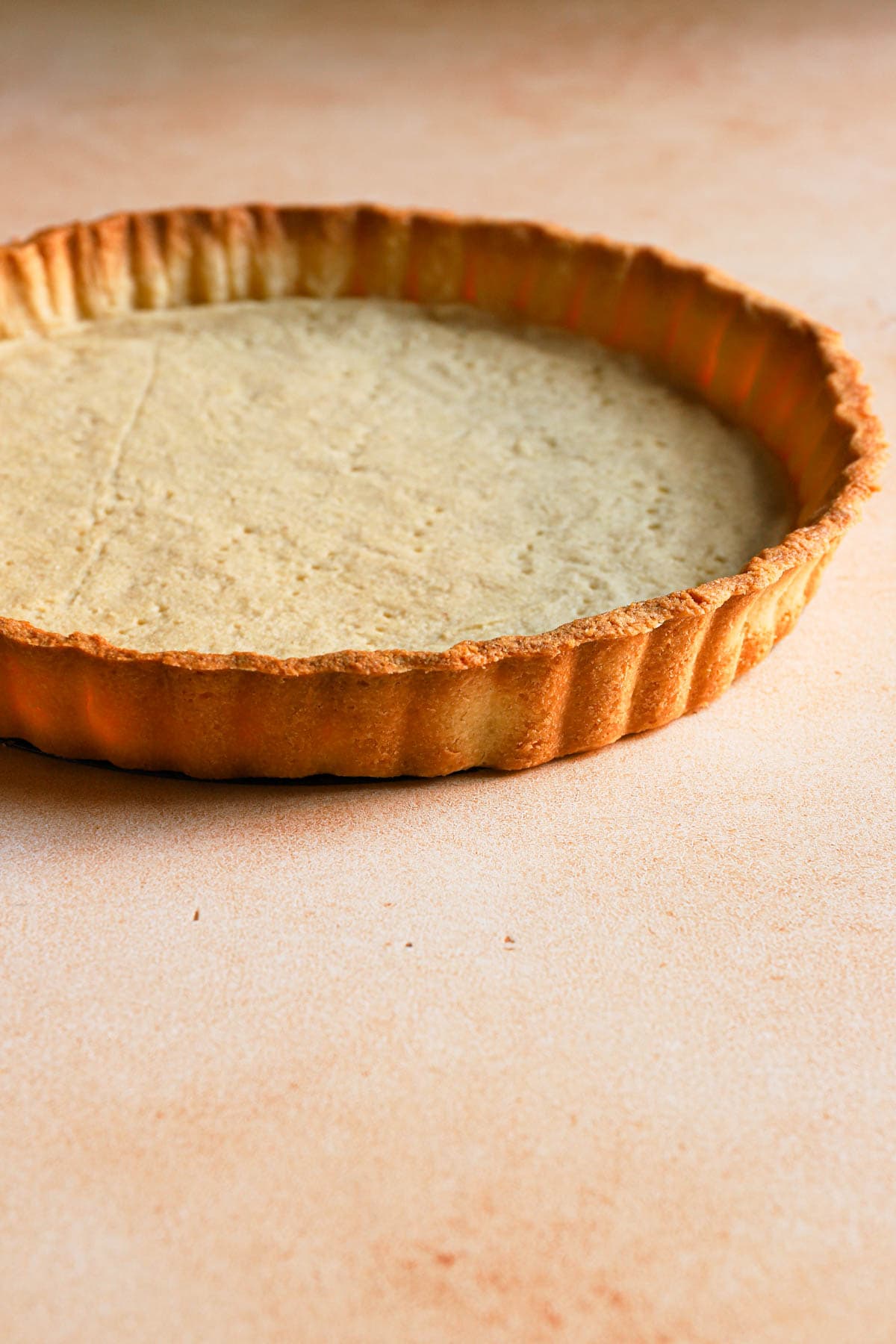
More Recipes You Might Enjoy
Cream Cheese Pie Crust, How To Make Choux Paste, How To Make Brioche Bread
Pate Sucree Recipe, Sweet Shortcrust Pastry
Ingredients
- 1/2 Cup Unsalted butter, soft (113g)
- 1/3 Cup Granulated sugar (70g)
- 1 Large Egg, at room temperature
- 1 teaspoon Vanilla extract
- 1 2/3 Cup All-purpose flour (200g)
Instructions
- In a food processor, process the butter and sugar until you have a paste-like mixture.
- Add the egg and vanilla extract and process until smooth.
- Add the flour and process until you get a smooth dough.
- Press the dough together into a dick then wrap it with plastic wrap and refrigerate for a minimum of 60 minutes, or overnight.
- Roll the dough between two large pieces of parchment paper into a 10.5-inch circle.
- Remove the top layer and use the bottom one to press the dough into a 9-inch (or 8) tart shell.
- Place the tart shell back in the refrigerator to set before removing the parchment paper. Meanwhile, preheat the oven to 375F (190C) and place a baking pan at the center of the oven.
- Remove the tart from the refrigerator and peel off the parchment paper.
- Trim the access dough and use a fork to prick the bottom of the dough.
- Grease the parchment paper you just peeled and place or over the pastry, fill the shell with pie weights, dried beans, or rice, and bake over the baking sheet that is in the oven for 10-15 minutes for par-bake, or 20-25 minutes for fully baked.
Notes
- Follow the same steps when you use a stand mixer, a hand mixer, or a bowl.
- The dough can be stored in the refrigerator for up to three days.
- Baked, the pastry should be stored at room temperature for up to three days.
- Do not add more flour as you roll the dough, more flour will change the texture of the dough. Roll it between two pieces of parchment paper or cling wrap.
- To replace the sugar with powdered sugar, use 1/2 cup of powdered sugar (60g)
- Allow the pastry to cool completely in the shell before removing from the tin.
- To successfully remove the pastry from the shell, place the tin over a cup, and gently press the sides of the pan. Use a knife to run it at the bottom.

